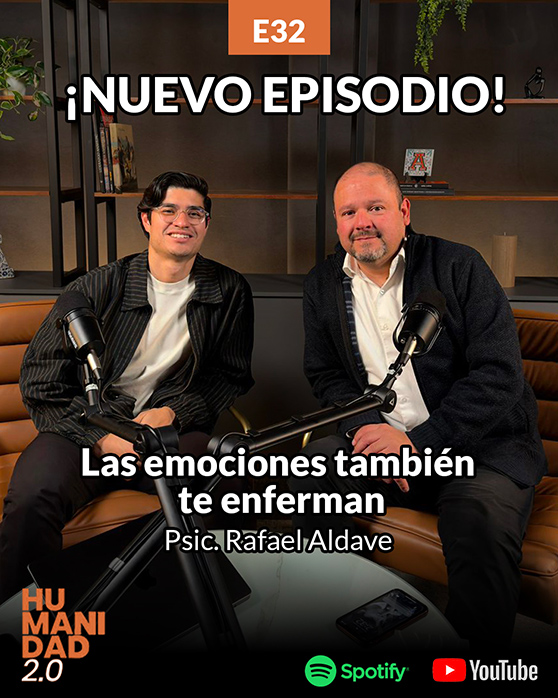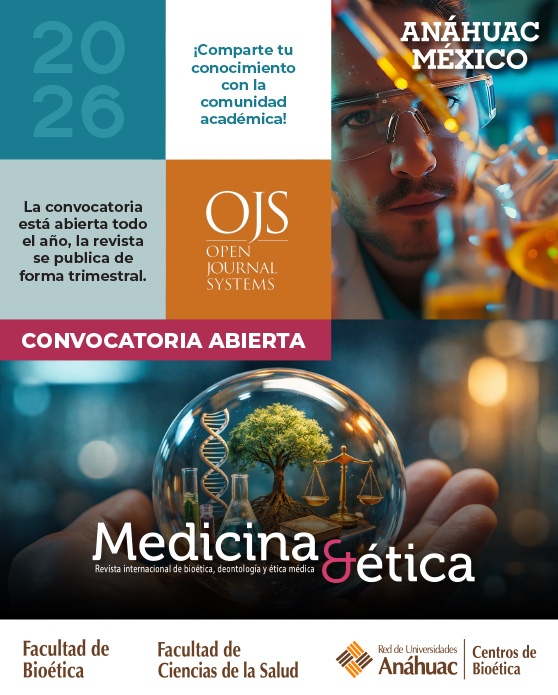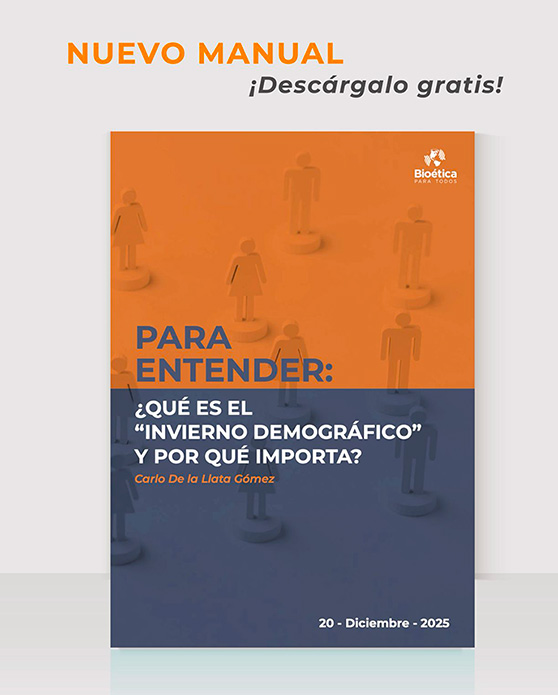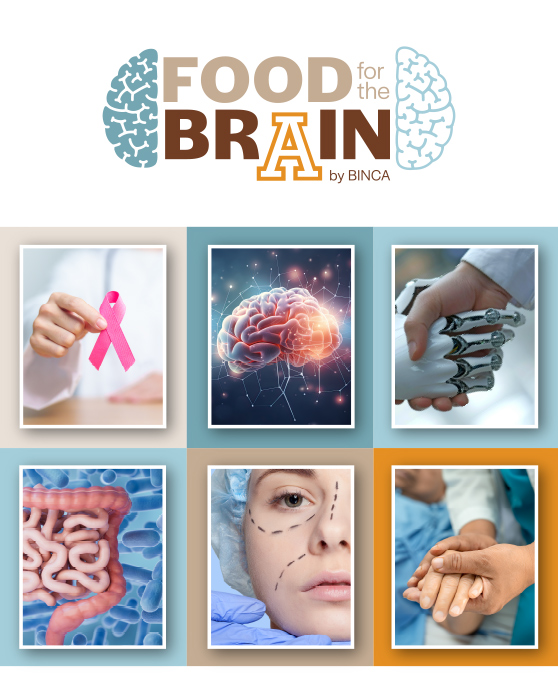
May 5, 2025
Author: Juan Manuel Palomares Cantero
Versión en español
Personal integrity and the value of the human body are essential pillars in the protection of human rights and in contemporary bioethical thought. From the earliest international instruments, respect for physical, psychological, and moral integrity has been recognized as an indispensable condition for safeguarding human dignity. However, scientific advances, cultural transformations, and current economic dynamics have generated new challenges that strain the limits of autonomy and consent. This article analyzes the normative foundations of the right to integrity, its inseparable relationship with human dignity, the risk of instrumentalizing the human body, and contemporary ethical dilemmas in light of fundamental bioethical principles such as respect for physical life, subsidiarity, solidarity, justice, and the common good—proposing an active and renewed defense of the human body as an inviolable expression of the person.
Normative Foundations of the Right to Personal Integrity
The right to personal integrity finds its roots in the universal principle of respect for human dignity. International instruments such as the Universal Declaration of Human Rights enshrine, from their earliest articles, the prohibition of torture, cruel, inhuman, or degrading treatment, extending this protection beyond the mere preservation of life. Protecting integrity means ensuring that people are not subjected to actions that violate their body, mind, or spirit, recognizing that any physical or psychological aggression constitutes an affront to their value as human beings. This perspective places personal integrity at the core of human rights, with its respect being a necessary condition for a dignified life.
The American Convention on Human Rights reinforces this principle by establishing that every person has the right to respect for their physical, psychological, and moral integrity, imposing on States the obligation to actively protect it. This obligation is expanded in the field of bioethics by the Universal Declaration on Bioethics and Human Rights, which acknowledges the need to safeguard integrity in the context of scientific and technological advances. The well-being of the individual must always prevail over the interests of science or society, reaffirming that human bodies cannot be instrumentalized, manipulated, or used as means to ends foreign to the respect and promotion of human dignity.
Relationship Between Human Dignity, Physical Integrity, and Human Rights
Human dignity is the central axis from which all human rights are organized and interpreted. The protection of physical and psychological integrity cannot be understood as an act of generosity by the State or institutions, but rather as a direct obligation derived from the recognition of each human being’s intrinsic value. Without the guarantee of integrity, other rights such as freedom, autonomy, equality before the law, or even the right to life would be rendered meaningless, for a violated body or an annulled mind lacks the necessary foundation to fully exercise such rights.
This perspective demands that medical, scientific, and social practices respect and actively promote personal integrity, recognizing the inseparability of the body-mind unity. Human beings cannot be fragmented into isolated physical and spiritual dimensions; their integrity implies comprehensive protection of their existence. Therefore, any intervention on the human body or psyche must be directed not only at physical well-being, but also at preserving autonomy, personal identity, and the capacity to participate fully and freely in social, political, and cultural life.
The Human Body: Intrinsic Value and Prohibition of Instrumentalization
Recognizing the intrinsic value of the human body implies acknowledging that its respect does not depend on its functionality, health status, or usefulness to others. The body, as the visible expression of the person, must be protected against any form of manipulation that reduces it to an instrument. This view prevents justifying practices where the human body becomes an object of exchange, profit, or sacrifice in the name of scientific advancement or social needs. Thus, any action that uses the body as a means—even if pursuing seemingly noble goals—must be carefully evaluated considering the principle of absolute respect for dignity.
In today’s context, where biotechnological developments and economic dynamics exert unprecedented pressures on corporality, the prohibition of instrumentalization becomes a crucial principle. From organ commercialization to new forms of reproductive exploitation, the risk of dehumanizing individuals grows in scenarios that disguise violations of dignity under the discourse of autonomy or solidarity. Faced with these challenges, asserting the intrinsic value of the body is not only an ethical demand but an indispensable defense of the human condition against contemporary trends that threaten to blur the line between person and object.
Autonomy and Control Over One’s Own Body
Bodily autonomy assumes that individuals are the primary agents responsible for decisions affecting their existence, particularly in contexts of medical or scientific interventions. This faculty of self-determination should not be understood as an isolated act of will, but as a decision that, to be fully legitimate, requires adequate information, conscious reflection, and the absence of undue pressure. The requirement for informed consent is not merely about formal validation of a procedure, but about ensuring that individuals exercise their freedom authentically, within a framework of respect for their dignity and integrity.
However, the exercise of autonomy encounters natural and legal limits when serious risks to life are involved, or when situations of exploitation or vulnerability are concealed under the appearance of consent. Autonomy, far from being an absolute principle, must be understood in constant dialogue with other fundamental values such as life, health, and the non-instrumentalization of the human body. Thus, respecting autonomy requires balance: protecting each person’s freedom without allowing decisions made under coercion, ignorance, or extreme need to justify violations of their dignity.
Historical and Contemporary Violations of the Right to Integrity
Historical abuses of personal integrity revealed the urgent need to establish clear ethical limits to the actions of medicine, science, and state power. Medical experiments conducted in inhumane conditions, such as those in Nazi concentration camps or the Tuskegee study, showed that humans can be reduced to mere experimental objects when their intrinsic dignity is disregarded. These episodes not only marked a turning point in bioethics but also left a legacy: the demand to actively protect individuals from any form of integrity violation.
Today, although the forms of abuse have changed, threats to personal integrity persist—especially for the most vulnerable. Practices such as forced sterilizations, obstetric violence, or biomedical research without consent show that human dignity continues to face real risks. The State's obligation does not end with the formal prohibition of such practices but requires effective mechanisms of prevention, sanction, and reparation. Protecting the integrity of every human being thus implies an ongoing ethical and legal commitment that must be translated into concrete actions—not just symbolic declarations.
New Challenges: The Human Body in the Face of Biotechnology and Contemporary Culture
Advances in biotechnology and changing cultural perceptions of the body have expanded the range of possible interventions on human corporeality, generating ethical dilemmas that were unimaginable just decades ago. The ability to modify the body through cosmetic surgeries, implants, gene therapies, or extreme alterations necessitates distinguishing between truly free decisions and those conditioned by social pressures, unattainable beauty standards, or cultural expectations. In these scenarios, the challenge arises to protect personal integrity not only from direct physical harm but also from social dynamics that instrumentalize the body under the guise of individual choice.
Phenomena such as organ trade and surrogacy even more starkly reveal how autonomy can be compromised in contexts of economic inequality. Even when consent is present, the vulnerability under which certain decisions are made casts doubt on their ethical legitimacy. The risk of reducing the human body to merchandise demands a response that reaffirms its inalienable value—reminding us that neither market needs nor narratives of scientific success can justify objectifying the person. In this new horizon, strengthening the legal and ethical protection of the body becomes an urgent and essential task.
Current Bioethical Tensions
The bioethical analysis of current tensions surrounding bodily autonomy requires consideration of fundamental principles that protect human dignity and life. Respect for physical life and corporality reminds us that the body is not a disposable object but a constitutive part of the person. Every body intervention must safeguard physical integrity as the visible expression of human dignity, avoiding that decisions driven by need or social pressure justify actions that, at their core, undermine life or instrumentalize the human being. Likewise, solidarity demands recognition that vulnerability conditions the authenticity of consent and requires society to create support systems that prevent bodily decisions from being made under structural coercion.
In turn, the principles of subsidiarity, justice, and the common good compel the creation of normative frameworks that not only formally regulate consent but actively promote equitable conditions for free exercise. Subsidiarity demands respecting the real autonomy of individuals but also intervening when decision-making capacity is impaired by poverty, discrimination, or marginalization. Justice demands that the most vulnerable are not the only ones exposing their bodies to risks for economic reasons. The common good requires maintaining a culture that values the human body as inviolable, thus protecting not only individuals but society as a whole from the erosion of the fundamental principles that sustain human coexistence.
Conclusions
The protection of the human body as an expression of dignity and personal identity is a non-negotiable principle of international law and contemporary bioethics. Respect for physical, psychological, and moral integrity cannot be relativized by social, scientific, or economic interests, nor can it be conditioned on the body’s functionality or usefulness. In a context where technological advances and market dynamics exert unprecedented pressures on the body, it is urgent to reaffirm that the human body is not a disposable object but a constitutive part of the person, deserving of absolute respect. Moreover, this protection demands interpreting autonomy not as an isolated principle, but in dialogue with other fundamental values such as justice, solidarity, and the common good.
In the face of contemporary challenges, bioethical analysis requires building normative and cultural frameworks that safeguard physical life, promote subsidiarity to strengthen free decision-making, and protect the most vulnerable from instrumentalization. The defense of bodily integrity cannot remain symbolic; it must be translated into effective actions that ensure environments of respect, inclusion, and protection. Only in this way can we preserve the human condition in the face of dynamics that tend to dehumanize it, keeping alive the conviction that every human being—in body and spirit—possesses an inviolable value that no advancement or necessity can legitimize violating.
Juan Manuel Palomares Cantero is a lawyer, with a master's and doctorate in Bioethics from Universidad Anáhuac, Mexico. He served as Director of Human Capital, Director, and General Coordinator at the Faculty of Bioethics. He currently works as a researcher at the Academic Office for Holistic Education at the same university. He is a member of the Mexican National Academy of Bioethics and the Latin American and Caribbean Federation of Bioethics Institutions. This article was assisted in its writing using ChatGPT, an artificial intelligence tool developed by OpenAI.
The opinions shared in this blog are the sole responsibility of the respective authors and do not necessarily represent a unanimous opinion of the seminars, nor an official stance by CADEBI. We value and encourage any comments, responses, or constructive critiques you wish to share.
Más información:
Centro Anáhuac de Desarrollo Estratégico en Bioética (CADEBI)
Dr. Alejandro Sánchez Guerrero
alejandro.sanchezg@anahuac.mx






